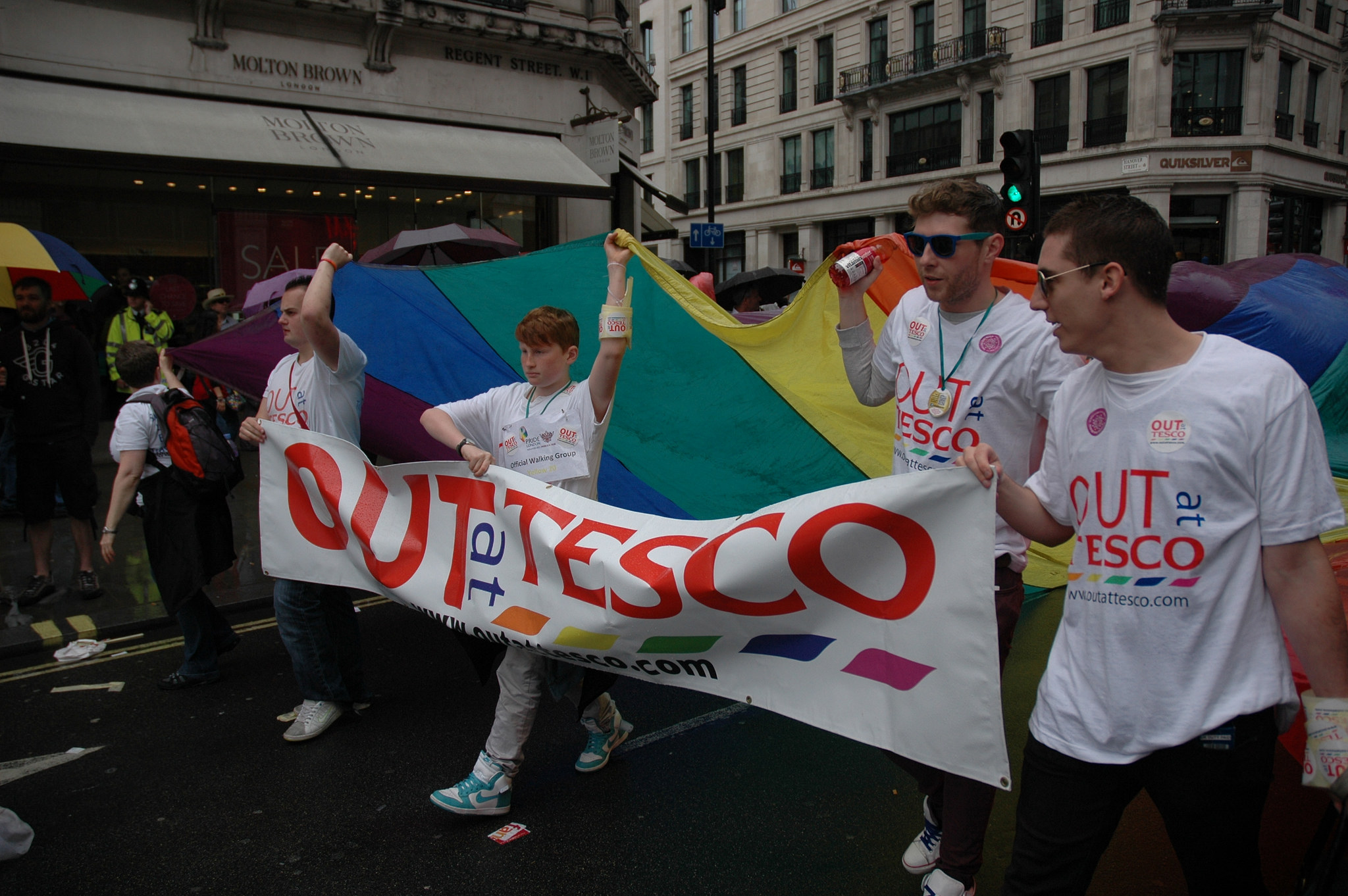For those who believe that LGBTQ people have essentially got equality now and no more campaigning is required, yet more evidence has proven this to be wrong. Research carried out by the Trades Union Congress (TUC) has found that more than one in three LGBT people in the UK has been harassed or bullied while at work.
More than 5,000 LGBT+ people were surveyed which, according to the TUC, makes this the most comprehensive workplace survey of UK LGBT people.
Discrimination that takes place in the workplace can have widespread consequences for any employee, from social isolation to a lack of career progression to even being made unemployed. The TUC survey highlights zero-hours contracts, for instance, as an area where LGBT harassment can lead to managers reducing or eliminating an LGBT person’s hours.
The stats
- 39% of LGBT workers have been harassed or discriminated against by a colleague, and 29% have been harassed or discriminated by a manager. 14% have experienced this from a client, customer or patient.
- 51% of people are out or open about their sexuality to all of their work colleagues. This drops to 36% of young people and 27% of bisexual people.
- 30% of trans people have been ‘outed’ against their will in the past.
What this means
Harassment can be made up of jokes and chiding, outright bullying, victimisation, or limiting a person’s career potential. It can lead to other LGBT+ people being afraid to come out at work and to hide details of their personal life from colleagues and bosses, through fear that they will be victimised again.
If the person picking on you is your boss, your union rep, or a member of your HR department, you feel even more limited in who you can go to for help. Those with supportive bosses and colleagues can find themselves in a more optimistic position, but day-to-day working life can still be a struggle if clients or others within the organisation are committing harassment.
TUC General Secretary Frances O’Grady said, “Let’s be clear – homophobia and transphobia at work is undermining, humiliating and can have a huge effect on mental health. LGBT workers are often left feeling ashamed and frightened. It has no place in a modern workplace, or in wider society.
“Employers must be clear that they have a zero tolerance attitude to harassment of their LGBT staff – and stand ready to treat any complaint seriously.”
Straight, cis employees and employers can offer support to their LGBT+ colleagues by standing up against hatred and defending anybody who is attacked for their sexuality or gender identity. Ensuring that the workplace is a safe space and being clear that there is no place for discrimination or harassment is vital if LGBT+ people are to be able to be themselves, not suffer, and contribute to the company or organisation. Equality and diversity training should be provided to ensure that nobody is in any doubt about the correct way to behave.
For those considering that they don’t have anyone LGBTQ at their workplace so they don’t need to reach out to anyone with these statistics in mind, the figures about the proportion of LGBT people who are out at work should come as a shock. The idea that life is so easy for gay folk now that everyone can tell everyone is brought into chastening reality when between half and two thirds of people don’t tell all their colleagues about their sexuality or gender identity.
Outing somebody against their will is never justifiable, whether it is about their sexual orientation or their gender identity. Some people justify outing politicians who vote against gay people’s best interests or others who commit outrageous hypocrisy, but even that is difficult to stomach. The apparent need to out a trans people to their work colleagues, bosses or clients – something we know, via this survey, is alarmingly widespread – is not something that anybody can defend. It can lead beyond workplace discrimination to actual violence and other consequences such as the trans people losing their home, friends and family.
It should go without saying, but it clearly does not, that it is up to each individual person to tell whoever they trust and feel at ease with. It is not up to anybody else to announce this ‘news’, unless expressly asked to by the trans or LGB person themselves.
What needs to be done
The TUC is requesting that the government bans zero-hour contracts. It is far too easy for a boss to take away somebody’s hours if they take against them or are behaving in a discriminatory way. The union is also requesting that every industry and profession provides equality training, which includes LGBT-specific content.
Finally, in the longer term, the TUC wants sex and relationship education in schools to be LGBT+ inclusive so that harmful and discriminatory attitudes can be identified and addressed early on. If this move is not made compulsory, some of the schools that most need this education (for instance religious schools) will be able to bypass it, leaving their pupils worse off and at risk.
Photo credit: Jason Rogers/Creative Commons

